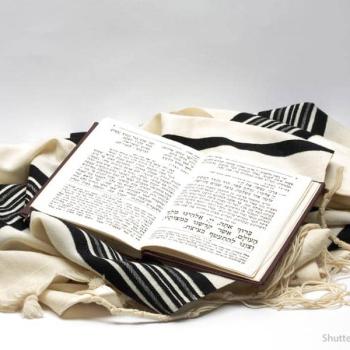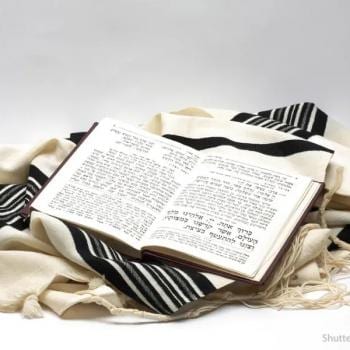Fasting as a Form of Penance
Sixth, fasting on Yom Kippur serves as a form of penance for Jews, as it does for Muslims during Ramadan. Narrated Abu Huraira: Allah’s Apostle said, “Whoever observes fasts during the month of Ramadan out of sincere faith, hoping to attain Allah’s rewards, then all his past sins will be forgiven” (Sahih Al-Bukhari Vol. 1).
Self-inflicted pain may alleviate some guilt, but it is much better to perform offsetting acts of righteousness to others. This is why contributing to charities is an important part of Yom Kippur and Ramadan. Indeed, Judaism teaches that fasting that doesn’t increase compassion is ignored by God.
The Prophet said, “Whoever does not give up deceitful speech and evil actions, Allah is not in need of his leaving eating his food and drink” (Sahih al-Bukhari, vol. 3, 31, #127).
Also, the concept of fasting as penance helps us understand that our hunger pains can be beneficial. Contemporary culture wants happiness above all else. Any pain or suffering is seen as unnecessary, and indeed evil. We occasionally may hear people echo ideas from the past such as that suffering helping one grow, and that an existence unalloyed with pain would lack certain qualities of greatness, but many today seem to think that the primary goal in life is “to always be happy and free of all discomfort.”
The satisfaction one derives from the self-induced pain of fasting provides insight into a better way of reacting to the externally-caused suffering we experience throughout life. Taking a pill is not always the best way to alleviate pain, especially if we allay the symptoms without reaching the root cause.
Seventh, fasting is good for the soul. It often serves as an aid for spiritual experiences. Those who are not by nature spiritual and emotional people will probably find that a one-day fast is insufficient to induce an altered state of consciousness. Those who have not fasted regularly before, especially, may find hunger pains a distraction.
The Hebrew word for a fast is tsom. In the Jewish mystical tradition, before God created the universe, God engaged in Tsimtsum—an inner contraction and concentration that preceded the ‘Big Bang.” Humans also need to periodically turn inward to enable us to connect with God and expand ourselves outward to other people and opportunities.
Fasting Is a Mitzvah
The eighth outcome of fasting is the performance of a mitzvah (religious duty), which is, after all, the fundamental reason for fasting on Yom Kippur. We do not do mitzvot in order to benefit ourselves, but because our duty as Jews requires it.
Fasting is a very personal mitzvah, with primarily personal consequences. Fasting on Yom Kippur is a personal offering to God, from each and every Jew who fasts. For over one hundred generations, Jews have fasted on this day. A personal act of fasting is part of the Jewish people’s covenant with God.
The principal reason to fast is to fulfill God’s commandment. Simply knowing that you have done one of your duties as a faithful Jew is the most basic and primary outcome of all.
Finally, fasting should be combined with the study of Torah (the five books of Moses specifically, or Scriptural texts in general). Indeed, the more one studies, the less one needs to fast. A medieval text states, “Better to eat a little and study twice as much, for the study of Torah is superior to fasting.”
A similar elevation of sacred study over fasting and prayer according to ‘Ali ibn Abi Talib is, “The religious scholar is greater in reward than the fighter in the way of Allah (Jihad) who fasts all day and prays all night.” (recorded in Reliance of the Traveller and Tools for the Worshipper, a classic manual of Islamic sacred law by Ahmad ibn Naqib al-Misri.
Though study, like fasting, is a personal experience, it takes place with a sacred text and/or a religious teacher. The Divine will is often more readily and truly experienced in study or in spiritual dialogue than in solitary meditation or study.
May our fasting become a first step toward the removal of the chains of self-oppression and narrow-mindedness that enslave us, our neighbors and our world! May future years of shared fasting by Muslims and Jews lead to a greater amount of understanding and respect through increased acceptance of religious pluralism.
May we always be a part of those organizations and movements that are fully committed to contributing to world peace, and which are equally committed to respecting both our own religion and our neighbor’s.
Photo by Jonathan Pielmayer on Unsplash.

















